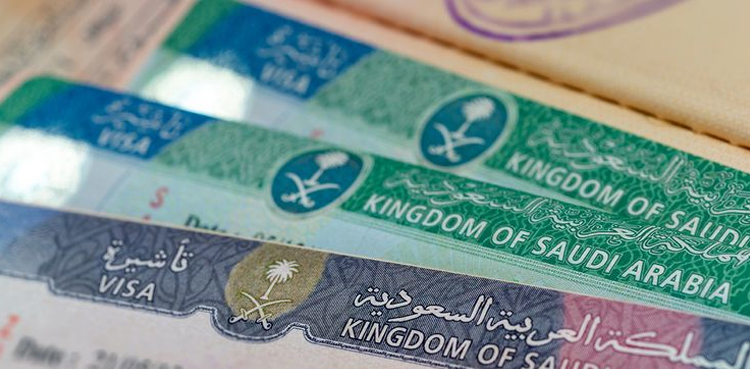沙特阿拉伯有多少种签证? – 全面概述
Saudi Arabia offers several visa options catered to the diverse needs of travelers, be it for tourism, business, or religious purposes. The Kingdom has made significant changes to its visa policies to encourage more visitors as part of its Vision 2030 program.
Whether you’re planning a pilgrimage, attending a business meeting, or exploring the historic cities, understanding the various types of Saudi visas is essential for a smooth travel experience.

The process of obtaining a Saudi visa involves specific regulations and requirements that must be adhered to. While some visas may be available upon arrival or through online application, others might require a visit to a Saudi embassy or consulate.
It’s important for travelers to be well-informed about the prerequisites and the correct type of visa for their visit to ensure compliance with Saudi Arabian laws and avoid any complications during their stay.
How Many Types of Visa in Saudi Arabia? – Key Takeaways
- There are multiple visas offered by Saudi Arabia suiting different travel purposes.
- Visa application procedures include both online and consulate applications.
- Complying with visa regulations is crucial for a trouble-free visit to Saudi Arabia.
Types of Saudi Arabian Visas
Before you plan your visit to Saudi Arabia, it is important to understand the different types of visas available. Depending on the purpose of your visit, whether it is for tourism, long-term work, or a special reason, there are specific visas you ought to apply for through government channels such as the Ministry of Foreign Affairs, the Saudi consulate or embassy in your country.
Tourist Visas
Saudi Arabia Tourist Visa: This visa is conducive for those wishing to explore the rich culture and traditions of Saudi Arabia as a tourist. With the introduction of the electronic visa (eVisa), obtaining a tourist visa has become more accessible. GCC citizens from Kuwait, Oman, Bahrain, and the UAE can often avail themselves of a visa on arrival or eVisa, expediting their travel process.
- 签证费: Each visa category comes with its own set of visa fees.
- eVisa: The Saudi Arabia Tourist eVisa can be applied for online. This electronic visa has streamlined the process for tourists from eligible countries.
- Islamic Laws and Regulations: As a visitor, you are expected to comply with local Islamic laws and customs during your stay.
Work and Long-Term Visas
Employment and Government Visas: These visas are issued for those looking to take up employment in Saudi Arabia. Applicants must coordinate with their prospective employer and the Ministry of Labor.
- 就业签证: Your employer in Saudi Arabia must apply for approval from the Ministry of Foreign Affairs.
- Residence Permit: After receiving an employment visa, expats will need to apply for a residence permit or Iqama.
- Family Visit Visa: For family members of expats living in Saudi Arabia, obtaining a family visit visa through the Ministry of Foreign Affairs is necessary.
学生签证: Those coming to Saudi Arabia for educational purposes must secure a student visa, normally facilitated by the educational institution in conjunction with the Saudi government.
Special Purpose Visas
Religious Visas: Saudi Arabia issues Umrah and Hajj visas specifically for Muslim pilgrims intending to visit the holy cities of Makkah and Madinah.
- 副朝签证: Available throughout the year, excluding the Hajj season, for Muslims looking to perform Umrah.
- Hajj Visa: Issued specifically for the annual Islamic pilgrimage of Hajj. Prospective pilgrims must apply through authorized agencies and must travel with a group leader as per Hajj visa regulations.
Business Visas: Ideal for individuals engaging in business activities or attending conferences. These visas are issued through the Saudi embassy or consulate after submitting a completed application form and relevant documents. Non-Muslims are welcome to apply for business visas as they are not subject to the same restrictions as religious visas.
These are the primary visa categories you may need to consider when planning your travel to Saudi Arabia. Each has its specific application process, regulations, and fees, aligned with the traditions and legal framework of the Kingdom. Always check the latest information and guidelines from official Saudi government sources before making your application.
Visa Application and Regulations
Applying for a Saudi Arabian visa involves understanding the application process, adhering to the entry requirements and restrictions, and being aware of the associated fees and financial regulations.
申请流程
The visa application for Saudi Arabia starts by identifying the type of visa suitable for your travel purpose. You can apply online for an 电子签证 或者 electronic visa waiver if you are eligible, or submit an application form through diplomatic missions 或者 政府 portals.
For example, US citizens and other eligible nationalities can obtain a Saudi Arabia eVisa for tourism purposes. Ensure your 护照 is valid for at least six months from the date of entry.
Entry Requirements and Restrictions
Upon applying for a visa, you should be aware of specific entry requirements and restrictions. Saudi Arabia has stringent laws, including severe penalties for drug trafficking,与 death penalty as the most extreme consequence.
It’s mandatory for travelers, including US citizens, EU citizens, and those from the 英国, to carry a confirmed onward flight ticket and, depending on visa type, may require a medical report. COVID-19 requirements are subject to change, so verify the latest health guidelines before your trip.
Visa Fees and Financial Regulations
Visa fees for Saudi Arabia can vary based on the visa type, duration of stay, and applicant’s nationality. Typically, a 签证费 is non-refundable and payable upon application submission, which may include Value Added Tax (VAT).
Accepted payment methods often encompass credit cards or other online payment platforms designated by the Saudi Arabian 大使馆 或者 领事馆. Note that citizens from certain countries may have visa-free access or could apply for a Schengen visa instead if traveling from a Schengen area country.






